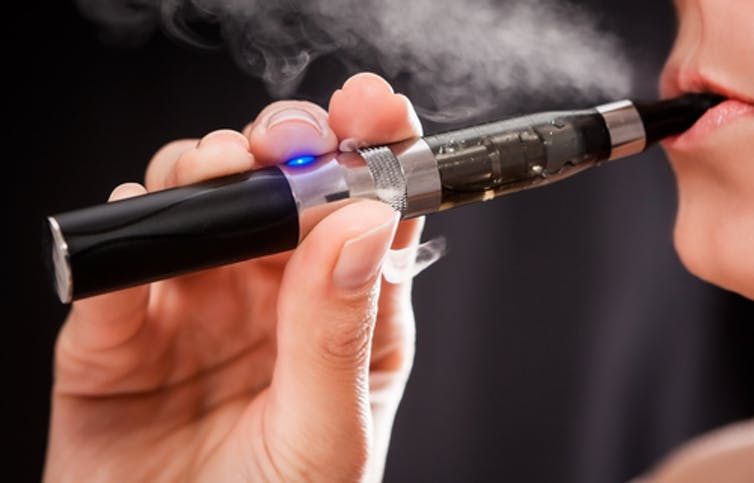Impressive growth in SA’s global business services

E-cigarettes remain controversial because of the inability to know whether they are a gateway to cigarette smoking. One thing is clear: They are an environmental threat. RedPixel.pl/Shutterstock.com
The continued ban on the sale of tobacco products and e-cigarettes during the lockdown was a missed opportunity to make smoke-free alternatives available for 11-million South African smokers, said Philip Morris South Africa (PMSA) in a statement on Thursday.
“The blanket ban on all tobacco and e-cigarette products undermines the efforts of those adult smokers who switched to better alternatives, such as heated tobacco products and e-cigarettes,” said Phillip Morris SA MD Marcelo Nico.
“It also misses a huge opportunity to encourage all adult South Africans who would otherwise continue smoking to switch to smoke-free alternatives.”
Science and technology have enabled better alternatives to continued smoking.
“While scientifically substantiated smoke-free products are not risk-free and they contain nicotine, which is addictive, they are a much better choice than continued smoking,” Nico said.
Heated tobacco products were, however, still tobacco products, and all tobacco contains cancer-causing chemicals even in its natural form, said Sharon Nyatsanza from the National Council Against Smoking.
“They still contain cancer causing substances that weaken the lungs and the immune system.”
Nyatsanza noted Covid-19 attacked the lungs and behaviours which weakened the lungs put individuals at risk and that included the use of all tobacco and electronic nicotine and non – nicotine delivery systems.
“Stopping the use of tobacco products improves immune response, lung function and cardiovascular health placing people who have stopped smoking in a better position to fight severe infections like Covid-19,” said Nyatsanza.
“Illicit trade has been part of the landscape for more than a decade with increasing evidence of both local and multinational tobacco companies involved in the trade – this must be addressed through an independent track and trace system, and the ratification and implementation of the Protocol to Eliminate Illicit Trade in Tobacco Products.”
British American Tobacco SA (Batsa), said on Thursday a new study on the impact of smoking and cigarette prices during the nationwide lockdown supported its view the illicit tobacco market had ballooned as smokers continue to search for a fix.
A study conducted by the Research Unit on the Economics of Excisable Products (REEP), an independent research unit based at the University of Cape Town, found that over 90% of smokers who didn’t chose to quit had been able to buy illicit cigarettes during the lockdown.
According to Batsa, this meant “millions of illegal transactions are taking place across the country every day,” for which the state received no tax revenues.
And while the ban did incentivise some smokers to quit during Level 5 on the lockdown, this had slowed to a “trickle”, according to the research, which was based on an online survey of 23 000 respondents conducted between 4 and 19 June 2020.
The sale of cigarettes and tobacco products has been banned since March 26, with the state arguing research supported its view smoking leads to more severe cases of Covid-19.
For more news your way, download The Citizen’s app for iOS and Android.
Download our app